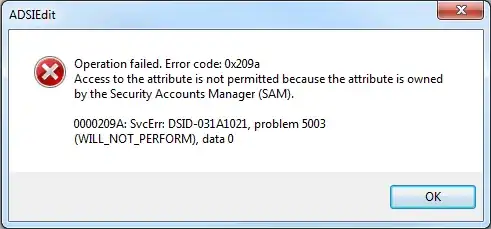I been working on and with SSL certificate's for a bit now and my organization is thinking of going with a Wildcard certificate vs the Multi-domain san certificate we have now. What I need to know, is why we should not go the wildcard Certificate route? I know how they work, but I need to sell this to them. I know the advantages and disadvantages.
I have been researching reasons why not to use and the only disadvantage I can really find is the same one every site or person says, " If the .key is compromised then the WCS is". I need a better reason why not to use it then that, because the multi-domain is the same way .key wise. We have and can put steps in place to make this safer.
What we are looking at doing is going from 1 UC Multi-domain with hundreds of SANs and breaking it down with wildcards. this will also be running through a NetScaler SDX 11500. I am not a big NetScaler person but I understand it. If we enabled SNI can we load different certs and keys?
Also do you know of more steps to make it safer. Thanks
